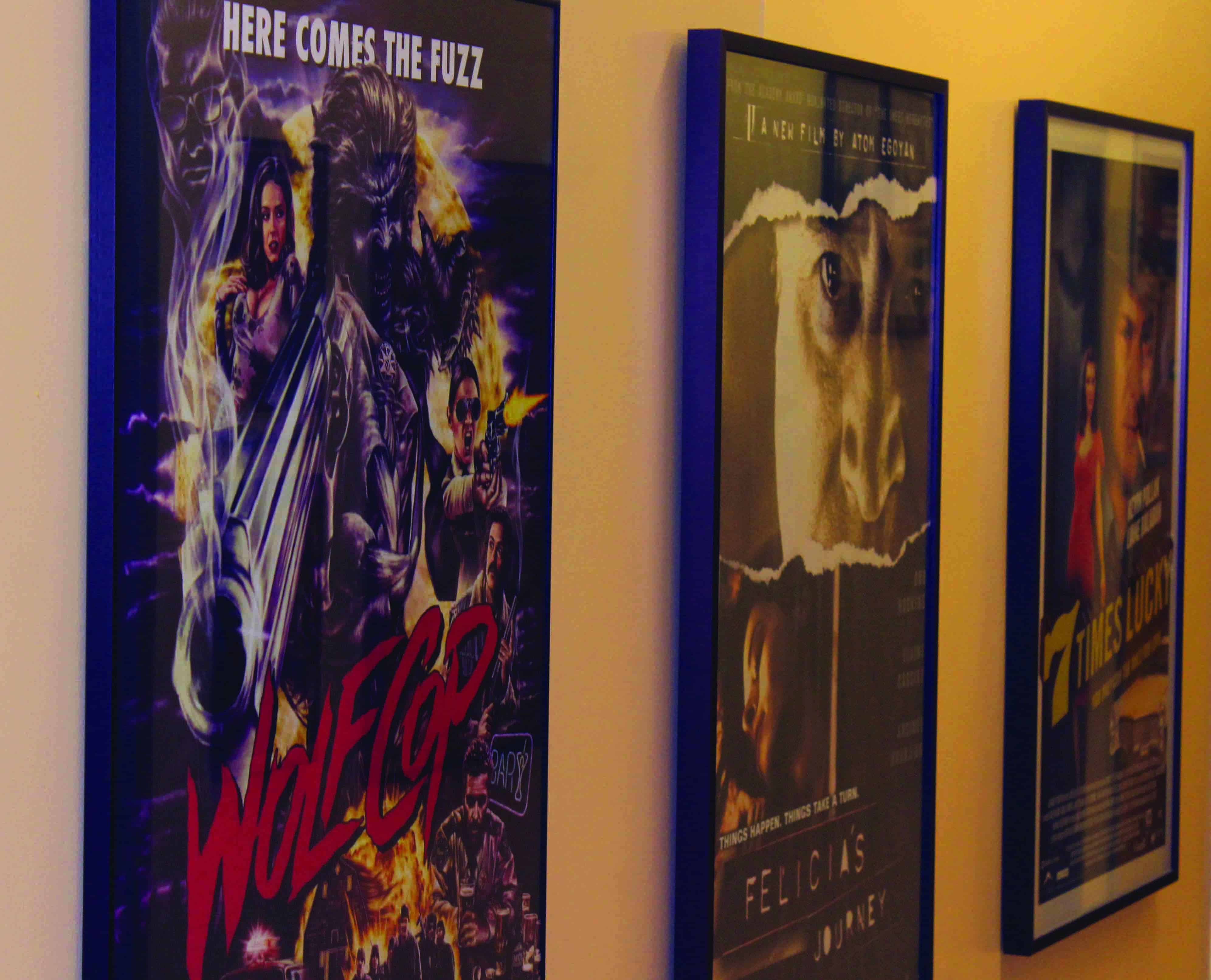
 University Council meets for the first time in decades
University Council meets for the first time in decades
Dietrich Neu
Editor-in-Chief
The voice of the University of Regina faculty got a little bit louder Wednesday.
The University Council, an advisory body made up of over 300 University of Regina students and faculty, met for the first time in over 20 years to vote on several issues stemming from the U of R’s looming budget crunch. The historic moment saw the council vote on eight motions in total, passing all but one. However, the motions were simply formal recommendations by the council – University President Vianne Timmons and the U of R board of governors will decide to what degree the council’s decisions will be implemented.
The media was allowed to attend, but was banned from recording the proceedings to ensure “that all members are comfortable bringing forth their concerns,” said Timmons, who chaired the meeting.
The U of R’s education auditorium, the largest auditorium on campus, was packed, to the extent that many spectators were turned away due to a lack of room.
One of the orders of business was a vote by the council that moved to freeze hiring of all non-union administrative staff. The motion, put forth by Associate Professor Susan Johnston, stated that the University’s own budget data confirmed that administrative salaries have ballooned over the past seven years – increasing 70 per cent over that time. The goal was to freeze hiring of non-union administrative staff for the time being.
Aside from a few positions, administrative spending has largely been left off the chopping block during the preparation for the budget cuts that will be publicly known in one week. In comparison, the English Department has faced massive cuts. According to Johnston, the beleagured department used to have access to 25 sessional instructors. Now, English will only recieve four. Timmons noted in a media scrum that there is not a clean divide between administration and faculty.
“Many of the administrative positions are in faculties,” she said. “Many of the work done to support students in distance education, Aboriginal Student Services, International Student Services … Many of those positions are staffed by [administrators], but they serve the students and the academic mission. So we have to look at the context of the numbers, and the service provided.”
The motion also called for an external review of all university finances from 2000 through 2012. Several members of council indicated that they were concerned about a freeze on administrative hiring, saying it will further prevent them from doing their jobs because they will have to focus on doing their own administrative work instead of teaching.
The motion passed, although a count was needed.
“I think it is fantastic,” said Jocelynn Marsden, who was one of only 11 students on the council. “This gives us a bit of time to address the administrative staff on a lower and higher level. We can examine whether or not every position out there is useful. If we see that they are not effective, we can shuffle their responsibilities to other people on staff. I think that this will help, in part, to prevent the rising costs of administration, which is a good thing.”
The council also voted to create a university hiring committee to reduce the cost of university management, and create a three-year plan to restore the university’s academic mission. Both motions were rooted in the widely-held belief that there needs to be more transparency regarding university spending. Several speakers noted that the faculty staff are “put under a microscope” and are forced to qualify all of their actions and spending.
“I think that this was an excellent meeting of council, and an example of collegial governance that is very positive. Many universities have council meetings as part of their regular procedure, but the University of Regina has not. My sense is that there is a lot of anxiety on this campus…we have had a lot of changes happen on the campus and what I heard today was a lot of concern from the faculty.” – Vianne Timmons
“I’m fine with that, but the university administration should be subject to the same scrutiny,” said one council member.
Both motions passed easily.
The only motion that failed to pass asked for a suspension of all executive council meetings until the University Council had met first. During the last University Council meeting in 1976, the executive council was created to be a representative body for the University Council. The failure of the motion means the executive council will continue to pass motions at separate meetings on behalf of the University Council.
“I think that this was an excellent meeting of council, and an example of collegial governance that is very positive,” Timmons said to a cluster of reporters post-meeting. “Many universities have council meetings as part of their regular procedure, but the University of Regina has not. My sense is that there is a lot of anxiety on this campus … we have had a lot of changes happen on the campus and what I heard today was a lot of concern from the faculty.”
The council also passed motions to increase transparency regarding all university financial matters, halt structural changes to the faculies, create a fiscal “think tank,” and create a budget committee of council.
U of R administration must now decide whether or not they are going to implement the changes that the council has suggested. The only motion guaranteed to come to fruition is the creation of the budget committee, which will make recommendations to the board of governors on financial decisions. According to one speaker, the board of governors would be able to reject the changes suggested by the committee, but would “have to provide clear rationale behind their decisions, making everything transparent.”
Timmons said that, despite concerns about administrative transparency, she will “absolutely” make the rationale behind any decisions regarding the council’s motions known.
“I will make everything public,” she said.
Student representation on the council was markedly low compared to meetings in the past. Out of a potential 50 seats, U of R students sat on only 11 voting positions. University of Regina Students’ Union President Nathan Sgrazzutti said that student underrepresentation on the council will not happen again.
“This time we didn’t get our 10 per cent representation,” he said. “I can guarantee you that next time we will.”
This was the first time the University Council had met since 1976. Despite that, Timmons said she is looking to chair another meeting this term, if possible.
Photo by Dietrich Neu










[…] The Carillon […]